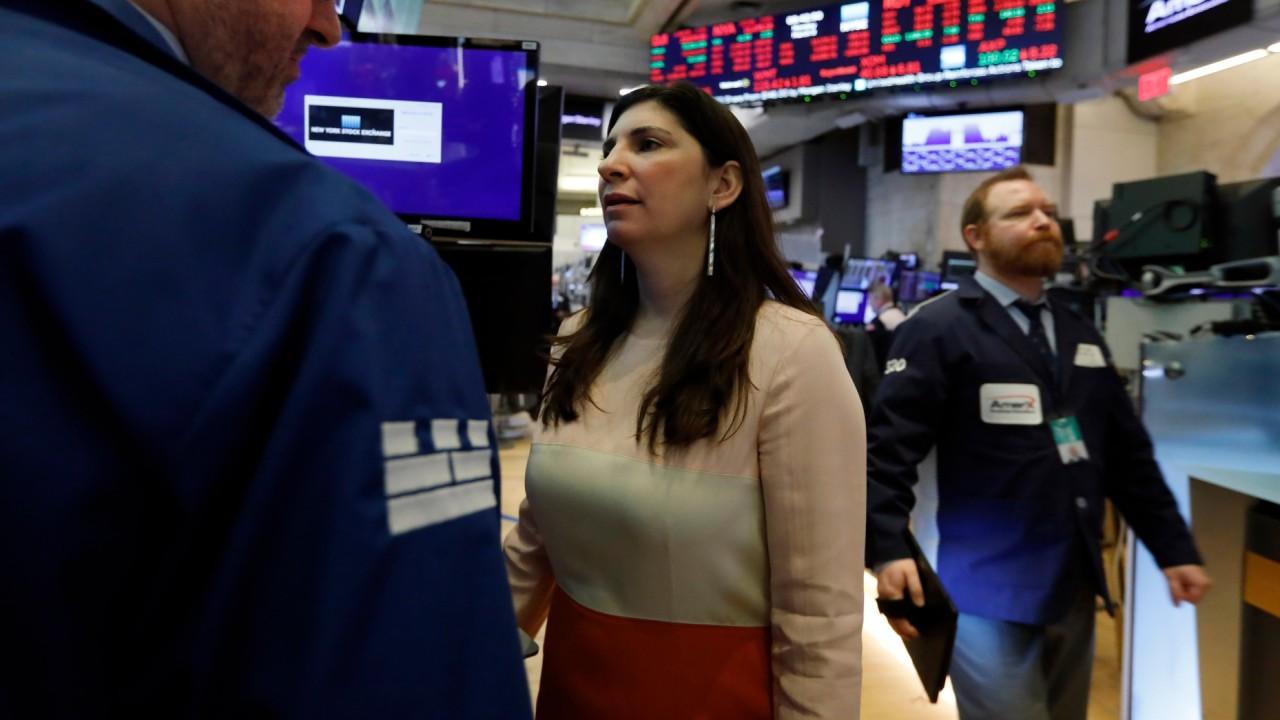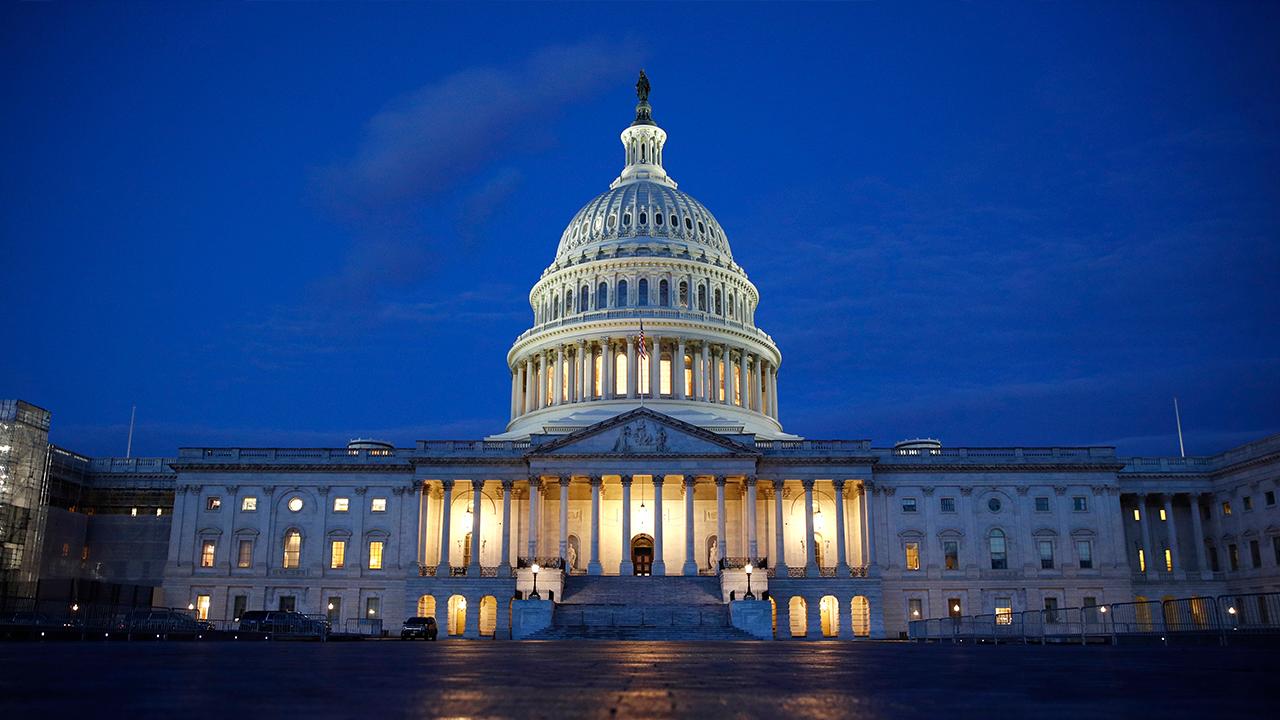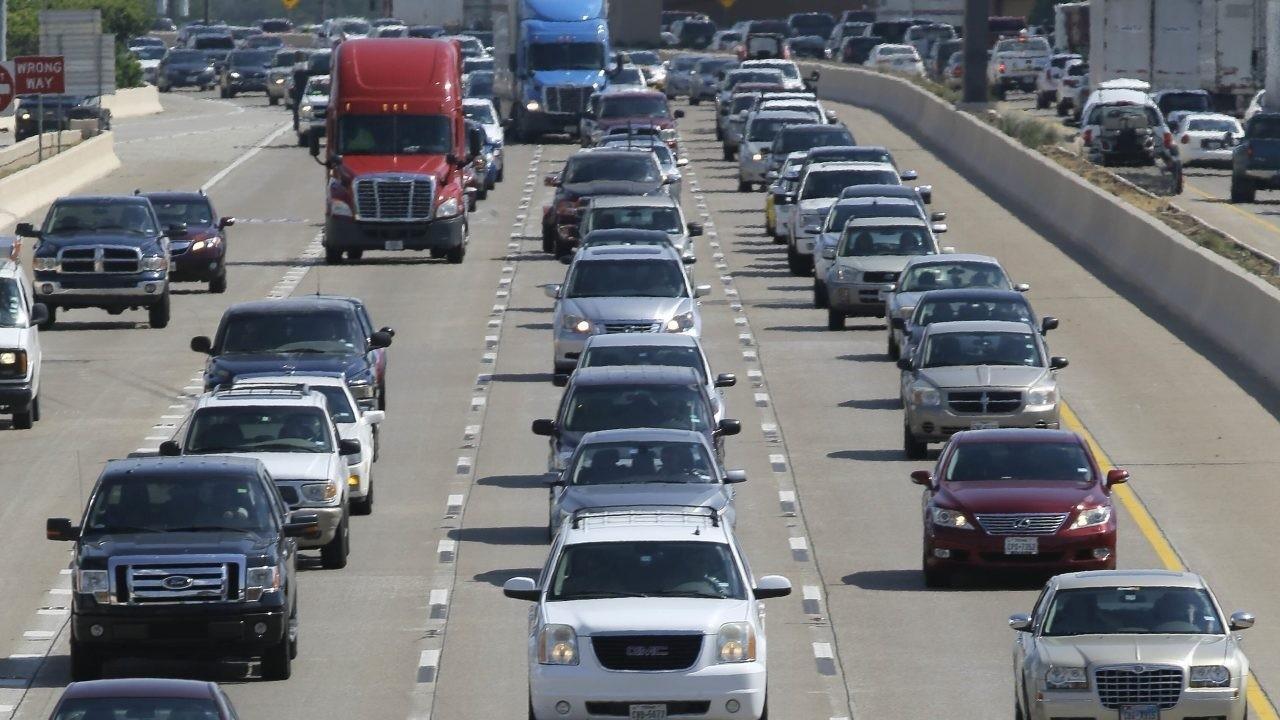Coronavirus calls for total economic war – Here's how Trump can wage it and win
Americans face an existential health threat that could mutate into an economic disaster unless Trump takes historic action now
For at least the next few months, Americans face an existential health threat that could mutate into an economic disaster unless historic action is taken by the Trump administration. And while Treasury Secretary Steven Mnuchin doesn’t expect an economic recession thanks to the coronavirus, not everyone on Team Trump agrees. One Senior White House advisers I spoke with fears a “severe recession,” with another key White House aide lamenting it could be “something far worse.”
The good news is that doesn’t have to happen—if swift and decisive action is taken immediately. We know such action is possible as the administration, working with Democrats in a bipartisan fashion, recently passed an emergency coronavirus bill in the House of Representatives.
DOW CRATERS OVER 2,800 POINTS AFTER FED TAKES EMERGENCY ACTION TO STEM CORONAVIRUS FALLOUT
While the bill is a good first step in providing things like free testing, paid sick leave and strengthening of funding for unemployment insurance, the bill on its own is not enough to halt what could be a massive economic contraction not seen in generations.
With people being told to stay at home, schools closed, stores closing or cutting back their hours and sports leagues cancelling seasons, the amount of economic damage our nation has endured in such a short period of time could end up being worse in its totality than the 2008-2009 Great Recession. And we all know it took years to return to any sort of economic normalcy.
Now is the time to consider what steps must be taken to ensure that any economic downturn is as short as possible. To do that, we must begin to think about what the economy will look like 30-45 days from now, when the fear and panic people are feeling right now diminishes, they start to return to work and day-to-day life returns to a more normal state.
Businesses, both large and small, will feel pressure to begin to cut costs and labor, to stop any sort of capital investments and lay off employees en masse.
Major industries, through no fault of their own, such as our airlines, cruise ships, trucking companies and many others will be impacted dramatically and many now face bankruptcy.
HOW LOW CORONAVIRUS-LED STOCK MARKET SELLOFF COULD GO: GOLDMAN SACHS
If we do no act fast, we will exchange breaking news headlines about the coronavirus pandemic to what will amount to daily job losses. We could see whole industries collapsing and complete economic carnage.
Only the Trump administration, through a massive stimulus package, can provide the backstop needed to ensure the economic gains made in the last few years aren’t for nothing.
Such a package must be massive to reassure and inspire confidence in financial markets that President Trump will do whatever it takes to mitigate what is clearly a black swan event that is unprecedented in American history. That means a plan to protect American workers, small and large businesses, while also providing enough economic stimulus to ensure the economy continues to function as normal as possible and create the conditions where growth can return as soon as possible.
The specific details of the plan I would argue for are simple. First, the total cost needs to have a shock and awe factor that markets know Trump means business and that the administration is now on a war footing to combat any economic aftershocks.
A proposed total stimulus of around $4 trillion would be of such scale that markets would have to take it seriously while also giving the American people the confidence that Washington will do whatever it takes, spend any amount, undo any burdensome regulation and remove any obstacle to save the economy.
WHAT TRIGGERS AN ECONOMIC RECESSION?
To put it bluntly: Team Trump must break what will be coming next, the inevitable headlines that America’s best economic days are only in the history books. Throwing trillions of dollars at the problem will go a long way to mitigate such fears.
Next, we need to consider what specific actions should be taken and how money should be spent. The backbone of any plan must be to protect any American worker who loses their job or has their hours cut due to the coronavirus.
In any stimulus package President Trump should guarantee any worker who suffers such a fate will be able to receive two years of unemployment benefits—no questions asked.
We know that employers will shed at least some jobs out of fear. We should do all we can to help Americans in this challenging time and make sure they have as much income as possible if they do lose their job due to no fault of their own.
CORONAVIRUS PUTS PAID SICK LEAVE BENEFITS UNDER SCRUTINY
But we should also try to stop unemployment from occurring before it happens. And that means direct support to large and small businesses whose bottom lines are impacted by the coronavirus. In any stimulus plan, the Trump administration should offer zero percent loans, grants that need not be paid back in the most extreme cases or whatever support is deemed economically necessary to any business impacted.
Clearly that means help to our tourism industry, but also the transportation sector and countless other businesses that will be impacted by any economic downturn.
We know that nations in Europe and China already do this to support countless industries such as their airlines and manufacturing and we will be at an economic disadvantage if we do not do the same.
We should also focus on shared bipartisan economic goals that have been delayed far too long to help spur economic growth. That means including in any stimulus a $1 trillion infrastructure spending plan spread-out over a three-year period.
This is a no-brainer and part of both President Trump’s and even many progressives’ agendas for years. We could finally fix the countless roads, bridges, tunnels and airports throughout our nation that desperately need to be repaired while putting millions of people to work and simulating construction activity—especially if a provision is added that stipulates all construction work is done with only U.S. made materials.
AS CORONAVIRUS SPREADS, RECESSION INCREASINGLY LIKELY, ECONOMISTS WARN
From there, we must inject as much money into the economy through several different actions. That means Congress must support President Trump’s idea of eliminating any federal payroll taxes from now until the end of the year.
Washington should also delay the traditional April 15th tax filing deadline until October 15th. The administration should also halt all federal government student loan payments—interest-free—for the next six months.
All federal tax on gasoline could be eliminated until the end of the year as well to ease the cost of doing business or traveling. The Administration could even propose giving the American people direct economic relief in the form of tax cuts across all income brackets and even stimulus rebate checks to help pay for essentials and ease the economic burden.
President Trump must also continue to pressure the federal reserve. While the fed has been aggressive in cutting interest rates—now down to near-zero clearly thanks to Trump’s constant criticism—it must continue to be as aggressive as possible. While the Fed also recently purchased $700 billion in treasury assets, it should stand at the ready to buy more and utilize every power it has to insulate the economy.
CLICK HERE TO GET THE FOX BUSINESS APP
The above plan is only a small sample of the countless ways the Trump administration could battle the economic impacts of a virus that has infected thousands of Americans and claimed the lives of far too many around the world.
Through a massive stimulus package, President Trump could shift the narrative away from the fear and panic people feel now to thinking about what a quick economic recovery could look like.
Now is the time to act boldly to ensure the coronavirus pandemic does not become something even worse: a coronavirus depression.
Harry J. Kazianis is director of Korean Studies at the Center for the National Interest. He also serves as executive editor of its publishing arm, The National Interest. You can follow him on Twitter @Grecianformula

























